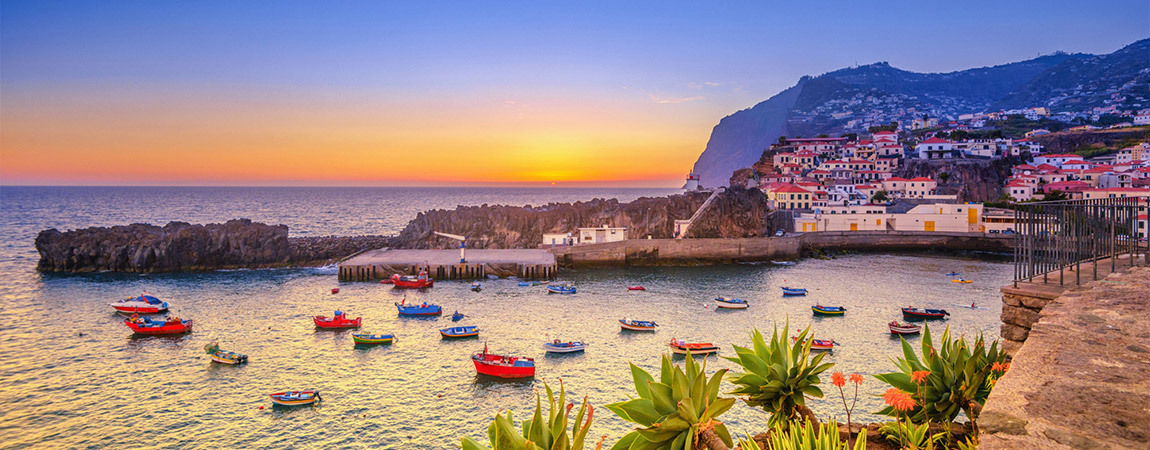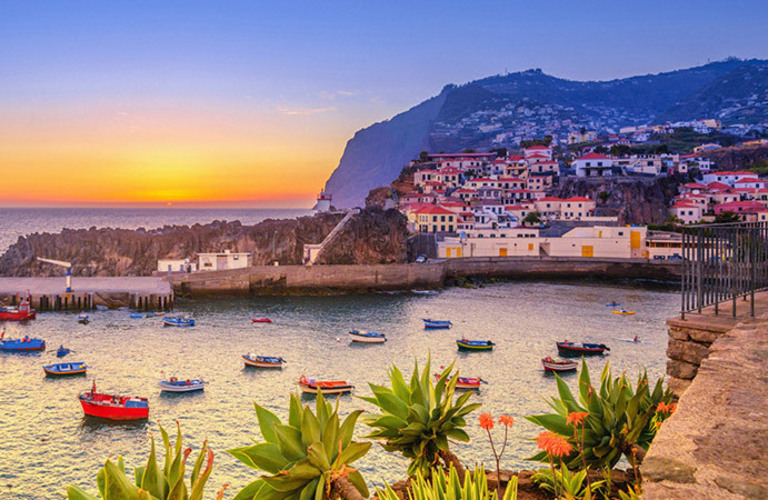Lisbon is the capital of Portugal and the first taste of country that many travellers will have. Lisbon is wonderfully cosmopolitan, with some of the country's best culture, historic sites and nightlife. Whether it's roaming through the tangled maze of narrow streets at Alfama, visiting one of the city's several monuments such as the Belem Tower or appreciating the beauty of the Ajuda Botanical Gardens, Lisbon has something for everyone.
The former capital of Portugal, Coimbra, is the place to go for anyone wanting to soak up some culture. Located in the centre of the country, Coimbra is best known for its university town status. While it is home to one of the world's oldest universities (University of Coimbra), the city has several other attractions. With a plethora of museums and art galleries such as the Museum of Science and vibrant annual festivals, Coimbra should not be missed.
Known as the 'Museum City', Evora is a monument in itself. Filled with ancient Roman ruins, churches including the eerie Chapel of Bones and stunning examples of megalithic structures such as Almendres Cromlech, Evora should be at the top of any travel itinerary. Popular with students, Evora has a relaxed atmosphere, with students picnicking in parks and studying in cafes. Situated only a few kilometres outside of Lisbon, this charming town provides a calm break from the bustle of usual package holidays to Portugal.
The 'Venice of Portugal', Aveiro is a gem on the northeast coast of the country. Half of the city is characterised by canals stemming from the Ria River and colourfully painted boats called moliceiros. Aside from the canals, the city's most obvious attraction, Aveiro is also home to some of the country's most gorgeous beaches. Costa Nova and Barra Beach in particular, offer idyllic views and delicious seafood.
For the best views of the historical city of Lisbon, travellers should pay a visit to St George's Castle. Located on the highest hill in the city, this castle which was once inhabited by 9th century Moors provides great insight into the country's complex history. Walk through the cobbled pathways, enjoy a quiet moment in the shaded courtyards or just take in the breath-taking views of the city below.
The Minho region is named after the river that separates it from neighbouring Spain. Packed with sky-scraping mountains, sites of historical interest, picturesque towns and sprawling vineyards, this region is almost Portugal in miniature, comprising most attractive qualities in one area.
Top Destinations in Portugal
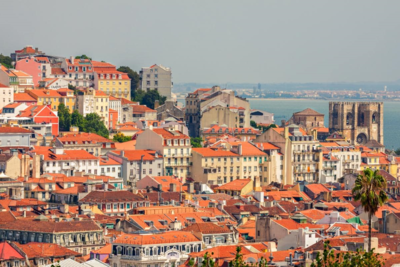
Lisbon
Soak up the sun, appreciate the culture and experience copious amounts of delicious cuisine on a city break to Portugal's capital city. Spend your days wandering through the rustic city streets or take a trip to one of the sandy beaches on the coast. Whether you're seeking a sun-soaked city break, party holiday or family adventure, Lisbon has everything you need for the ideal getaway.
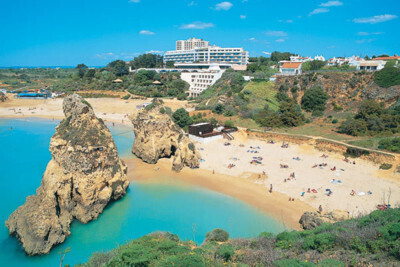
Algarve
The Algarve is home to some of Europe's best beaches. This is the place to head to for golden sand, year-round sunshine and perfectly manicured golf courses. Lying along the sparkling southern coastline of Portugal, you can even explore the open waters of the Atlantic here.
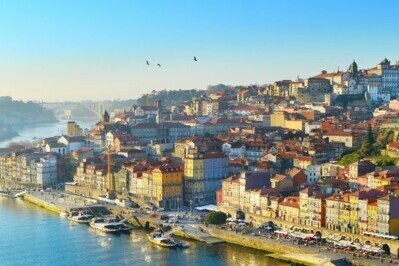
Porto
Happily escaping the crowds of the tourist hotspots, this sleepy fishing village has kept its traditional charm. A colour-popping mix of vibrant natural hues, the emerald ocean and bold greenery create a picture-perfect scene. Grab a spot in one of the quaint cafés and watch the boats sway gently in the breeze.
The official language in Portugal is European Portuguese. In several parts of the country, people speak regional dialects, including Baixo-Beir'o and Alentejano in the south, and Alto-Minhoto and Transmontano in the north. English is spoken in the large cities and the tourism industry. There are relatively few French, German and Italian speakers.
The currency of the Portugal is the euro, and the capital, Lisbon, has banks, money exchange shops and plenty of ATMs, with most offering instructions in English for tourists. However, outside the capital and tourist areas ATMs are rare. Credit and debit cards are accepted at most restaurants, petrol stations and large stores in Lisbon and other tourism hubs, but cash should be carried as well as small outlets and rural areas may not provide this service. However, for those uncomfortable with carrying large sums of money, there are official exchange kiosks across Portugal. These do carry a fee of 8 euros, no matter how much or how little you want to exchange. For lower fees, banks are a better option. Bank notes range from 5 to 50 euros while coins range from 1 to 50 cents. 1 and 2 euro coins are also accepted as legal tender. Travellers should note that most machines have a daily withdrawal limit of 200 euros. Most banks no longer offer a foreign exchange service. Hotels usually offer the worst rates.
Portugal is part of the European Union (EU) and is a signatory of the Schengen Agreement, in which 26 separate European Nations have opened their internal borders to other member nations. As a result, Portugal is open to citizens of all Schengen states. Citizens of EU countries which have not signed the agreement, including the UK, are also granted access to the country without a visa and for an unlimited period. However, it can still be worth carrying a passport, credit card and driving license in the event of needing to hire certain things, such as a rental car. Nationals of other countries should check with their nearest Portuguese embassy for visa requirements and costs.
Portugal boasts a warm, Mediterranean climate, with glorious summers and wetter winters. Similarly to Spanish coastal towns, most of Portugal benefits from a cooling sea breeze, making the 25°C summer highs incredibly pleasant.

 ATOL Protected
ATOL Protected
